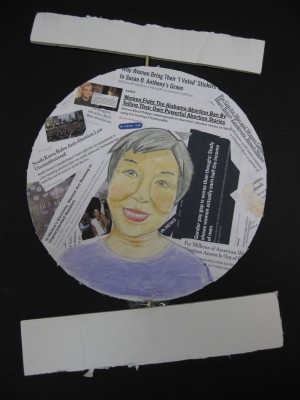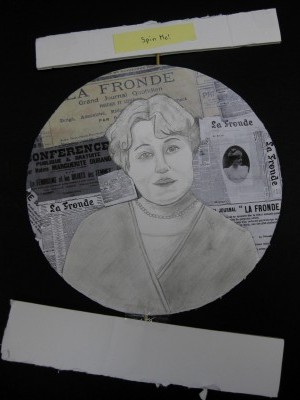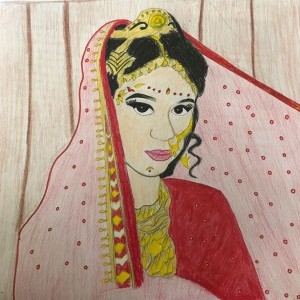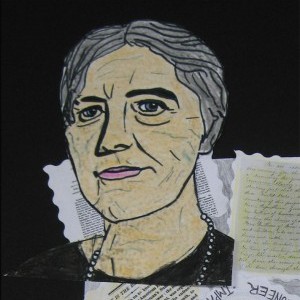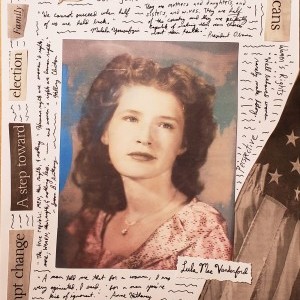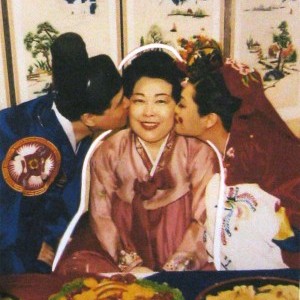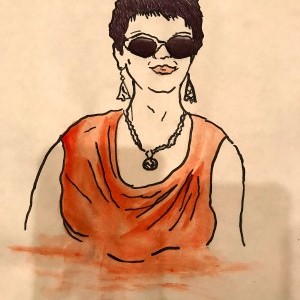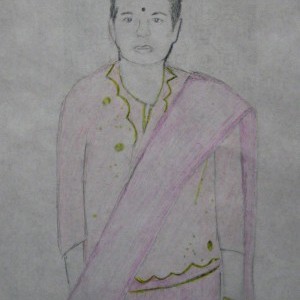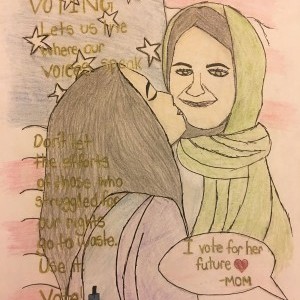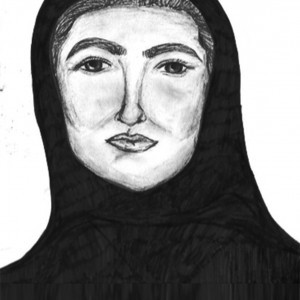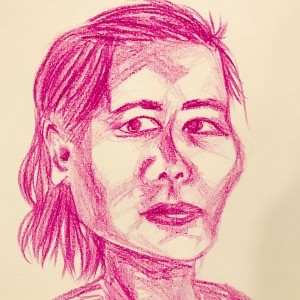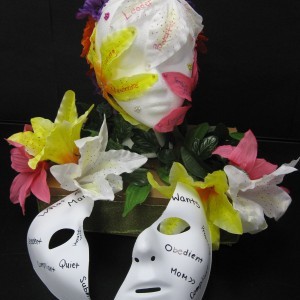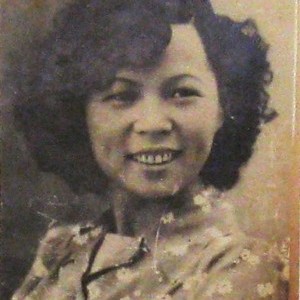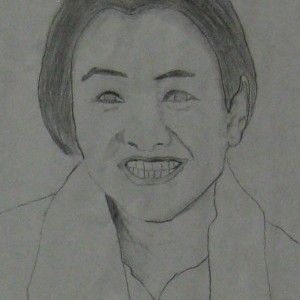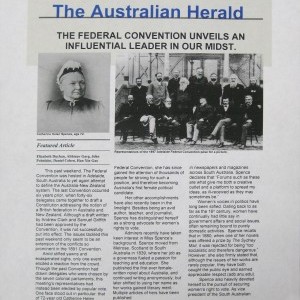Annabella Li, Samantha Wong & Rachel Sage Zhang
Townsend Harris High School | Flushing, NY | 11th Grade
Inspirational Family Member
Jung Cheng Ma, my Grandmother
Jung Cheng Ma, my grandmother, was born in 1941 as the fourth child out of eight. As a daughter in a traditional Chinese family, she faced many setbacks. At this time, China was heavily patriarchal. As strong believers in Confucianism, Chinese families gave total control to the husband, father, and son over females in the family.
During her childhood, my grandmother was severely ill. Because her parents had seven other children, she was given to an elderly couple who lived by the countryside. Her parents gave her up without regrets due to her gender and shortened life expectancy. But as the Chinese proverb goes, “The miracle is not to fly in the air, or to walk on the water, but to walk on the Earth.” And Jung Cheng Ma did just that. She has been walking this Earth for 78 years now. My grandmother overcame her deadly illness and reunited with her family.
During World War II, she was forced out of China and into Taiwan. There, she spent her adolescence. Taiwan embraced its alternate title, Formosa, meaning beautiful in Portuguese. At the time, Taiwan was not only beautiful in terms of nature and natural resources, but also ethical, political, and social principles.
My grandmother was able to vote at 20 years old, and did so as soon as she could. Since then, she has voted at every possible opportunity. My grandmother expresses genuine gratitude for her voting rights; she realizes that she is extremely lucky to have had the same rights I am currently entitled to. Not many people of her age can relate to her experience. Even at 75 years old, as a dual citizen of both the United States and Taiwan, she flies back and forth between these places to ensure that she votes in both elections. Through voting, my grandmother makes her voice heard, and she strongly believes in exercising said voting rights and recognizes their value.
She embodies the saying, “Age is just a number,” while she remains active despite her senior citizen status. Jung Cheng Ma is dedicated to remaining informed and involved in politics. She constantly helps New York City politicians who share her principles, hand out flyers, and spreads awareness of the latest political news. Her passion for a fruitful life has become an inspiration to her friends, family, me, and generations to come.
Historical Figure I Admire
Marguerite Durand
During the nineteenth century, first-wave feminism initially challenged traditional ideals of male superiority. Particularly following the French Revolution, French women revolted against Catholic monarchy in favor of Socialist and Republican rationale. Yet, uprooting such strong values was a gradual attempt, and it would not succeed without a collectively supportive effort.
Frenchwoman Marguerite Durand contributed to this effort in the second half of the nineteenth century. Born out of wedlock on January 24, 1864, Marguerite grew up with an admirable mother, Anna-Alexandrine-Caroline Durand, who struggled to raise two children in rigid French society. She supported her daughter by writing in newspapers under male pseudonyms.
Despite her uncharacteristic birth, Durand’s family followed strict societal standards. She attended the convent school of the Dames Trinitaires in Paris and had a strictly Catholic upbringing. Her rebellion against such traditions took place in 1879, when she took a class at the Conservatory of Dramatic Art. Durand gained interest in performing on stage. She won awards, including first honorable mention for education (accessit in French) on July 28, 1880 as well as the first prize for comedy on July 27, 1881. After joining the Comédie-Française, Durand made her debut as an actress and built a distinguished reputation. From her role as Marcelle in Le Demi-Monde (Dumas fils) to more famous plays like Les Femmes Savantes and L’Avare (Molière), Durand generated self-sufficient fame that would prove to be a key aspect of her public speaking abilities and her ability to lead the opinions of her audience.
Though Durand abruptly left her acting career for marriage, the man she married indirectly led her to a larger impact. In 1886, she married Georges Laguerre, a lawyer-politician who supported radical viewpoints such as those of Georges Clemenceau and social revolution. It was through her husband that Durand found interest in the field of journalism. She was known as the key force behind her husband’s La Presse tabloid. In 1895, she divorced her husband on friendly terms and even had the courtesy to temporarily care for his mentally ill and orphaned daughter Georgette Laguerre after his death in 1912. Moving on in 1896, Durand began writing for a women’s column in the reputable daily newspaper, Le Figaro, regarding anything from fashion to legislative scandals. While story hunting, she attended the Fourth French International Feminist Congress, which took place through April 8-12, 1896. The event changed the course of her life. Inspired by feminist Marie Pognon, Durand dedicated herself to a new path.
On December 9th, 1897, Durand launched the revolutionary La Fronde, the first daily newspaper to be produced and distributed exclusively by women. It expanded to discuss not only women’s issues, but essentially every aspect of life. Durand advocated for female involvement in activity, finance, sporting, and newfound independence; La Fronde brought many female reporters recognition in previously male dominated journalism boards. They had the freedom to publish their opinions as long as they supported the French Republic.
Nevertheless, the paper’s success was limited by circumstantial finance and discriminating restrictions. With 12,000 subscribers at most, the paper experienced consistent difficulty. In 1903, Durand merged La Fronde with L’Action, turning it into a monthly supplement. By law, it was illegal for women to work at night as typesetters, limiting the morning distribution of the daily newspaper. Durand founded the Union of Women Printers, which was admitted to the Labor Exchange and Women Printers’ Cooperative Society. Her continued fight for women’s rights caused expulsion from the Labor Exchange, and though readmitted, it led to high tensions and resistance against female rights in labor unions.
Undeterred by the end of La Fronde in 1905, Durand led various labor unions and women’s rights organizations, even running illegally for a seat in Parliament. Her passions continued through World War I as she supported women, disarmament, and the League of Nations. Throughout her entire life, Durand worked tirelessly in a conforming society to grant women rights. Her experiences as an actress, wife, and journalist gradually granted her the authority to take impactful stands against gender inequality and set a role model for the foreshadowed feminist movement. Even in the last three years of her life, Durand compiled feminist documentation for a library in Paris, Bibliothèque Marguerite Durand.
Just eight years after her death, in 1944, women received the right to vote and France made large strides towards genuine equality. Durand spearheaded the beginnings of an unconventional movement. Her bravery and compassion is still remembered, and her library remains standing to tribute the feminist movement today.
SOURCES +
What the Project Means to Me
Women are so strong, much more than society makes them out to be. I’ve come to realize this through my research process. Marguerite Durand showcased strength through her persevering nature and exercising freedom of the press. By courageously standing with such an unconventional movement, she impacted society’s political views nationwide. As a heroine of the past, she pioneered for women’s rights and paved the road leading to our status quo. My grandmother had the privilege of walking more comfortably upon that paved road. She walked that road with pride as she reinforced the importance of voting rights. To make sure that her voice was heard by politicians and to secure voting rights for women, my grandma has made it a point to vote in every single election, no matter big or small, since turning legal age. She saw the significance of voting rights and knew that they needed to be preserved for future generations.
Therefore, voting matters on local, state, and federal levels. Small changes can be made for a large impact, just as what was done during the Progressive Era. People of the time replaced local representatives which led to greater good, improving society as a whole, not just isolated areas. Each opportunity to vote is a chance for us to allow our voices to be heard, a chance to change what we are currently unsatisfied with, a chance to create a better tomorrow. Obtaining the right to vote did not come easy, especially for women. It was granted only after women showed the world their strengths and abilities, proving them extremely qualified to vote. This makes it even more critical that we vote at elections on all levels in remembrance of preceding women who sacrificed their lives and persevered for this right.
Explore the Archive
More From This Class
Click on the thumbnails below to view each student's work.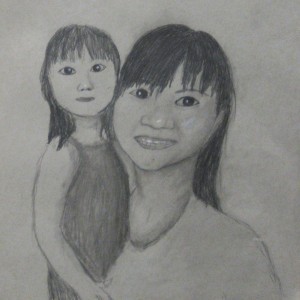
Vivian Chen, Josephine Chen, Ivan Chan, Zafirah Rahman, Neeharika Reddy, Daniel Shi, Daniel Shi, Jacqueline Cho & Osiris Guerrero

Jennifer Moran, Adebola Ademola, Julia Hong, Vicki Kanellopoulos, Inga Kulma, Maimunah Virk, Deborah Molina & Kailey Van
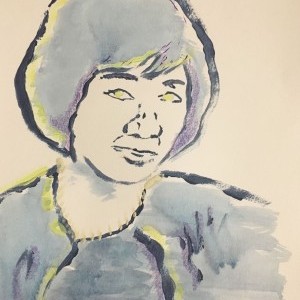
Kristina Chang, Sarah Chowdhury, Bethany Leung, Letian Fang, Cathy Choo, Kelly Chan, Emily Tan, Adamary Felipe & Kenney Son

